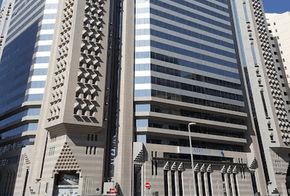Enterprise Resource Planning – ERP Software and its Selection Criteria
- July 29, 2021
- Posted by: Velosi Author
- Categories: ERP, Insights, Software

What is ERP Software?
Let’s straighten the basics; ERP Software refers to enterprise resource planning software, which encompasses various actions to increase an enterprise’s effectiveness across many departments. It is a business management software that automates an organization’s primary business processes, such as manufacturing, logistics, finances, marketing, and human resources.
The implementation of ERP software is a crucial investment for an organization. It is a choice that requires tremendous effort and thought.
The following article will help you select ERP software. With this guide, you can confidently gain the best ERP for your organization.
Top 10 Key Criteria for Selecting ERP Software
The process of selecting and using enterprise resource planning (ERP) software may be complicated. But you should think carefully about it before investing in this program.
To provide you with more information, we’re going to take you through the steps of implementing an ERP system. However, having an ERP plan in place from the outset simplifies the process. And a sound ERP strategy begins with the ERP system’s selection.
Consider the following steps help you demonstrate your business needs, evaluate and compare solutions, validate your technical requirements, and negotiate a significant contract.
- ERP System Functionality
- Vendor Reputation
- Total Cost of ERP
- ERP Reliability
- Implementation
- Ease of Integration with other Systems
- Advanced Technology
- Scalability
- References
- Training and Support
ERP System Functionality
Determining the functionality of ERP software products and services with for your company is critical to the ERP decision process. Evaluating the ERP software, viewing ERP demonstrations, and meeting with solution experts all contribute to determining the great functional match.
Moreover, it requires internal work. Facilitating internal conversations to identify your business needs for ERP and outlining the functional areas to handle is one of the most beneficial things you can do during the selection criteria.
Consider the following critical points that may help frame these discussions:
- Why are you contemplating a new enterprise resource planning system?
- What is functional with your existing software system?
- Which other systems must be linked with Enterprise Resource Planning Software?
- Which parts of your company lack visibility –or struggle with effective business reporting?
Vendor Reputation
This selection criterion is more social in nature than technical and may be assessed in light of the ERP Software vendor’s image. Examining a vendor’s ability ensures not only a great system but a great partner for your business. Consider the following:
- How long has the product been on the market?
- What’s the product roadmap?
- How many users use the program on a regular basis?
- How many local and international customers do they have for the software?
- How financially secure is the software company?
Total Cost of ERP
It might seem self-evident that you should evaluate the cost of an ERP system; the fact is, it is not as simple as it looks.
With so many components to consider, it’s necessary to ask: What will the solution’s actual cost be? The actual price varies depending on the number of users, software or module selection, hardware, implementation cost, maintenance, training cost, and support. It’s prudent to calculate an approximate estimate of your ROI before signing any contract.
Keep in mind the following variables while determining the ERP’s cost:
- Start by evaluating the platforms’ pricing and determining if it is reasonable in comparison to the functions and technologies it provides. If the vendor’s price system is unfair, you can certainly locate another product.
- Determine actual cost –calculate the long-term total cost of ownership (TCO), taking into account all expenses listed above.
- ROI –Once the assessments are complete, determine whether the anticipated ROI will be substantially more than the total cost of ownership (TCO).
ERP Reliability
Each disruption of the work process results in financial and customer losses and harm to the company’s image. Consequently, IT professionals see ERP dependability as a critical element in assessing and selecting ERP systems.
In contrast to ERP functionality, ERP reliability is a general criterion that doesn’t depend on the industry in which a firm operates. Although it is a qualitative element, it may be represented statistically, for instance, by evaluating the company’s unique characteristics or by defining key activity areas and the impact of the company’s deviation from norms.
Implementation
Implementation is critical to the success of your new ERP system. It’s essential to inquire about the vendor’s procedures for making a successful installation.
It is a necessary aspect of your ERP selection criterion. Your implementation will be complex, such as moving from a current system to a new ERP. While our full installation guide is available here, the following aspects need to be considered throughout the ERP decision process:
- Aid with Implementation — Does the seller assist with implementation? If so, how do they go about implementing it?
- Implementation Partner — If the vendor does not provide implementation help, you will almost certainly need to acquire one.
- Our list of criteria for selecting ERP software is complete. This list may be used to compare solutions throughout the software decision process.
Ease of Integration with other Systems
ERP system integration is a process that connects and synchronizes your enterprise resource planning (ERP) software with other systems, such as e-commerce apps or an EDI platform (Electronic Data Interchange).
ERP integration aims to assure that information is exchanged between the two systems automatically and consistently, thus generating a single source of truth. The following questions need to be considered throughout the ERP decision process:
- What integration tools does this ERP include?
- Is ERP capable of reading and using the data already stored in other systems?
- Will you permit the existence of duplicate data and how will you ensure compatibility between those independently updated data elements?
- Are you better off modifying the other system to take advantage of the ERP data?
It should be easy to integrate, for example, via.csv files for periodic data changes. This method of updating is inefficient and perhaps too slow for daily usage. Web services and XML files, which enable various systems to exchange data rapidly, are a more contemporary method of working.
Advanced Technology
In contrast to software functionality, many technology considerations are critical to the ERP selection process. You should ask yourself:
ERP systems include a significant amount of technology – for example, standard software should have business intelligence, reporting, and customization capabilities. As with the functional evaluation, you should consider the following:
- What technologies does the solution include, and which technologies do we require?
When you’re ready to compare ERP systems or are in the midst of your software decision process, keep the following things in mind:
- Check –if the solution can be customized to your organization’s specific business procedures. If the solution requires customization to operate properly, verify that the vendor can accommodate the requirement.
- Verify –if the solution meets your organization’s technological requirements. For instance, is it capable of generating graphic, real-time sales data for presentation purposes?
- Value – Determine if the ERP is built on cutting-edge technology and whether the seller intends to upgrade the system regularly. Take this aspect to guarantee you are not spending time and money on a system that will quickly become obsolete.
Scalability
Scalability in software refers to a system’s capacity to manage an increased volume of work and a growing traffic volume.
While some Enterprise Resource Planning software suppliers target big companies with complicated processes, do you know which solutions and implementation methods can extend indefinitely to suit your expanding business? If your client base grows, the software should be able to manage the additional users and transactions. Despite an increase in data volume, it should strive to support real-time data.
Scalability may be incredibly expensive with some on-premise alternatives. Additional servers may be expected to manage the increasing demand. It is imperative to ask about the capabilities of suppliers’ goods out of the box and if they can be extended.
References
Vendors will make any statements regarding the features and simplicity of use of their system. If you wish to verify these claims, you must obtain references so that you may speak with past customers. Consider the following questions before making a decision.
- Which functions did they add?
- How well did they perform?
- Was the vendor willing to provide continuing assistance and training?
References should come from equally qualified companies that have developed comparable capabilities. If you’re contemplating ERP, inquire about references from companies who have successfully implemented their software in their systems.
Training and Support
Training and support are critical components of keeping a system operational and functioning. In the ERP industry, suppliers offer a diverse variety of training options.
A complete training strategy involves access to instructional videos or documents, an online knowledgeable or user community. Generally, comprehensive service includes access to a contact center and a variety of online tools.
While evaluating training and support, keep the following points in mind:
- End-User Requirements – To begin, evaluate the user’s requirements. Which kind of training, for example, face-to-face or virtual, will be most convenient and beneficial for end-users? Have you got an internal IT department that can provide technical help, or will you depend completely on external assistance?
- Pricing – Are support and training costs included in the license charge, or will they be an extra expense?
Key Takeaways
All things considered, selecting ERP is a daunting task. The most critical component of an ERP strategy is the selection process and strategy. It forms the foundation and defines the framework for a sustainable and effective ERP strategy. It reduces your implementation costs.
Various key components to consider in the procedure for selecting are:
- How much experience your business already has with ERP
- Is your company equipped organizationally for the selection and implementation?
- Are you willing to quantify and establish accountability?
- Are you searching for key characteristics that would be a problem immediately if they are absent from planned ERP systems?


